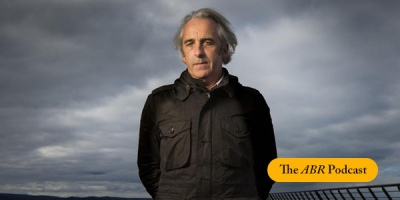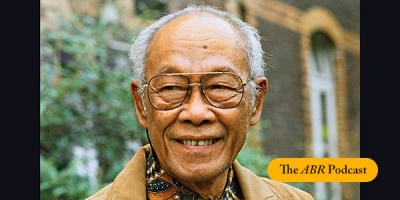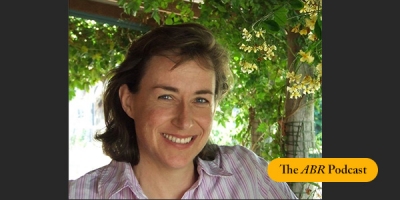The ABR Podcast
In this week’s ABR podcast we feature one of the winners of the 2011 ABR Elizabeth Jolley Short Story Prize. Gregory Day’s ‘The Neighbour’s Beans’ was joint winner of the prize that year with Carrie Tiffany’s ‘Before He Left the Family’. Gregory Day commented at the time that ‘the short story form encourages an intense display of the writer’s craft whilst being a potent vehicle for the compression of emotion’. Gregory Day is a novelist, poet, and composer from the Eastern Otways region of southwest Victoria. Listen to Gregory Day’s ‘The Neighbour’s Beans’, published in the October 2011 issue of ABR.
... (read more)In this week’s ABR Podcast, Frank Bongiorno assesses the Albanese government, which has recently completed the first half of its first term in office. Frank Bongiorno is Professor of History at the Australian National University, President of the Australian Historical Association, and the author of books including Dreamers and Schemers: A political history of Australia. Listen to Frank Bongiorno’s ‘‘‘Thin labourism” How is the Albanese government travelling?’, published in the April issue of ABR.
... (read more)In this week’s ABR Podcast Sascha Morrell reviews Matthew Lamb’s biography, Frank Moorhouse: Strange paths. Mathew Lamb might be the ideal reader for Moorhouse’s archive and seems to match Moorhouse’s capacity for telling the truth ‘bit by bit’, wink by nudge. Sascha Morrell is a regular ABR contributor and a Lecturer in Literary Studies at Monash University. Listen to Sascha Morrell’s ‘“When I am famous”: A masterpiece of biographical synthesis’, published in the April issue of ABR.
... (read more)On this week’s ABR Podcast, we return to the winner of the 2016 Calibre Essay Prize, Michael Winkler’s ‘The Great Red Whale’. As ABR remarked at the time, ‘This excoriating yet remarkably subtle meditation is also a tribute to consolations: landscape, specifically the desert of Central Australia, and literature, notably Moby-Dick.’ Here is Michael Winkler with ‘The Great Red Whale’.
... (read more)This week on the ABR Podcast we consider a poetics of contemplation with Scott Stephens. In his review of Kevin Hart’s book on reading and thinking, Lands of Likeness, Stephens writes, ‘there is no desire to consume the object of contemplation; what there is, is a longing to understand’. Scott Stephens is the ABC’s Religion & Ethics online editor and the co-host, with Waleed Aly, of The Minefield on ABC Radio National. Listen to Scott Stephens’ ‘Nothing but kestrel: Kevin Hart’s invitation to read contemplatively’, published in the March issue of ABR.
... (read more)This week on the ABR Podcast we tell the story behind Indonesia’s twentieth-century literary masterpiece, the Buru Quartet, a set of novels that began life in a jail cell. The Buru novels were written by Indonesian author Pramoedya Ananta Toer, widely considered a potential winner of the Nobel Prize. Nathan Hollier, publisher at Australian National University Press, explains why the Buru novels hold special significance for Australia, even though, as he writes ‘few Australians have heard of them’. Listen to Nathan Hollier’s ‘”At least I’ve told these stories to you”: Pramoedya Ananta Toer and the Buru Quartet’, published in the March issue of ABR.
... (read more)In this week’s episode of the ABR Podcast we revisit Cate Kennedy’s short story ‘Sleepers’, which won second prize in the 2010 ABR Elizabeth Jolley Short Story Prize. ‘Sleepers’ was also included in Kennedy’s 2012 short-story collection Like a House on Fire. Cate Kennedy is an award-winning writer of fiction, non-fiction and poetry. Listen to Cate Kennedy’s ‘Sleepers’.
... (read more)This week on the ABR Podcast we look at Qantas with business writer and historian Stuart Kells. In his review of Alan Joyce and Qantas: The trials and transformation of an Australian icon by Peter Harbison, Kells notes that the company’s declining reputation extends beyond the area of substandard customer service. Stuart Kells is Adjunct Professor at La Trobe Business School and has twice won the Ashurst Business Literature Prize. Listen to ‘Fasten your seatbelts: Turbulent times at Alan Joyce’s Qantas’, published in the January-February issue of ABR.
... (read more)In this week’s ABR Podcast, historian Ebony Nilsson tracks the lives of mid-century migrant Australians with the aid of ASIO and CIA files. Ebony Nilsson is a Research Fellow at the Australian Catholic University, the current ABR Laureate Fellow, and recently published her first book, Displaced Comrades: Politics and Surveillance in the Lives of Soviet Refugees in the West. Listen to ‘The lives of ‘ordinary’ people: From Siberia and Shanghai to Kings Cross’, published in the January-February issue of ABR.
... (read more)This week’s ABR Podcast features Kevin Foster’s straight-shooting review of whistleblower David McBride’s memoir The Nature of Honour, which begins: ‘Sometimes, for the faithful, it doesn’t do to look too closely into the life of your chosen idol.’ Foster’s books include Don’t Mention the War: The Australian Defence Force, the media and the Afghan conflict (2013). One of his current research projects – about social media and the military – is funded by the Australian Army Research Centre. ‘The lives of the saints: David McBride’s ethic of self-interest’ is published in the January-February issue of ABR.
... (read more)









